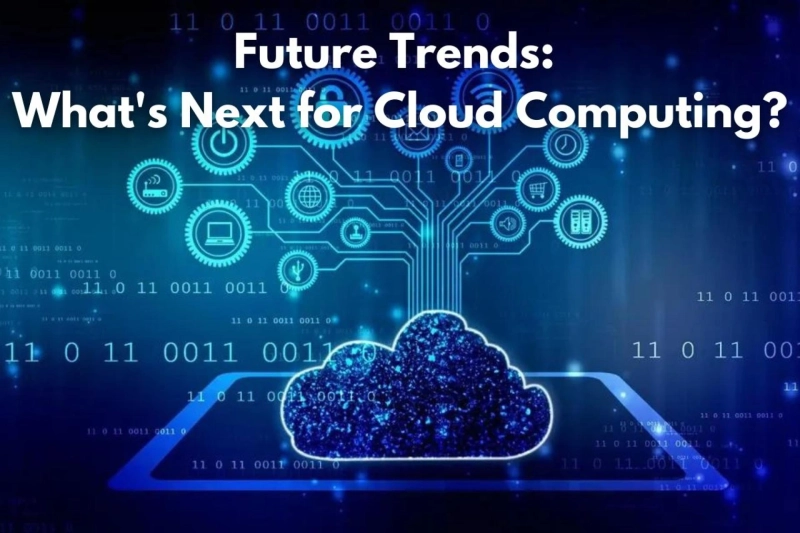Cloud computing has been a transformative force in the world of technology, reshaping the way businesses operate and how individuals access and share information. As we look ahead, several key trends are poised to shape the future of cloud computing, influencing its evolution and impact across various industries.
1. Edge Computing Integration:
The rise of edge computing is set to redefine how we perceive and utilize cloud resources. Edge computing involves processing data closer to the source of generation, reducing latency and enhancing real-time processing capabilities. As more devices become interconnected, integrating edge computing with cloud services will become pivotal for applications requiring low latency, such as IoT devices and augmented reality.
2. Quantum Computing Impact:
The advent of quantum computing introduces a paradigm shift in computational capabilities. While quantum computing is still in its early stages, its potential to revolutionize complex problem-solving is undeniable. Cloud providers are likely to explore quantum cloud services, enabling businesses to leverage this unprecedented computing power without the need for significant infrastructure investments.
3. Enhanced Cloud Security Measures:
As cyber threats continue to evolve, ensuring robust security measures in the cloud becomes paramount. Future trends will witness the integration of advanced security technologies such as homomorphic encryption, confidential computing, and AI-driven threat detection. Cloud providers will focus on proactive security approaches to safeguard data and privacy, addressing concerns that may hinder broader cloud adoption.
4. AI and Cloud Synergy:
The synergy between artificial intelligence (AI) and cloud computing will deepen, leading to more intelligent and adaptive cloud services. AI algorithms will play a crucial role in optimizing resource utilization, automating routine tasks, and enhancing overall efficiency. Cloud platforms will integrate AI-driven features to provide more personalized and predictive services to users.
5. Serverless Computing Maturation:
Serverless computing, known for its event-driven architecture and automatic scaling, will mature and become more mainstream. Developers will increasingly adopt serverless platforms to build and deploy applications without the need to manage underlying infrastructure. This shift simplifies development processes, reduces costs, and accelerates time-to-market for new applications.
6. Hybrid and Multi-Cloud Evolution:
The future of cloud computing lies in hybrid and multi-cloud environments. Organizations will leverage a mix of on-premises, public cloud, and private cloud resources to meet specific business requirements. Cloud providers will enhance interoperability, making it easier for businesses to manage and migrate workloads seamlessly across different cloud environments.
7. Sustainable Cloud Practices:
Sustainability will be a key focus in the future of cloud computing. As environmental concerns grow, cloud providers will increasingly adopt eco-friendly practices. This includes optimizing data center energy consumption, utilizing renewable energy sources, and implementing green computing initiatives. Organizations will factor in a cloud provider's sustainability practices when making procurement decisions.
8. 5G Integration and Cloud Services:
The rollout of 5G networks will significantly impact cloud services, offering faster and more reliable connectivity. Cloud applications and services will be optimized for 5G capabilities, unlocking new possibilities for mobile and IoT applications. Edge computing, coupled with 5G, will enable enhanced real-time experiences, making cloud resources more accessible and responsive.
In conclusion, the future of cloud computing is dynamic and filled with exciting possibilities. The integration of emerging technologies, coupled with a focus on security, sustainability, and efficiency, will shape the next phase of cloud evolution. As businesses continue to leverage the cloud for innovation and scalability, staying abreast of these trends will be crucial for maximizing the benefits of cloud computing in the years to come.


